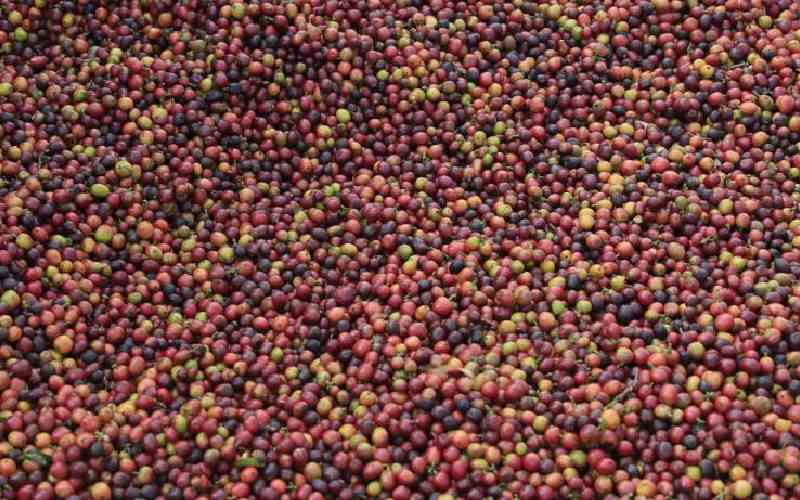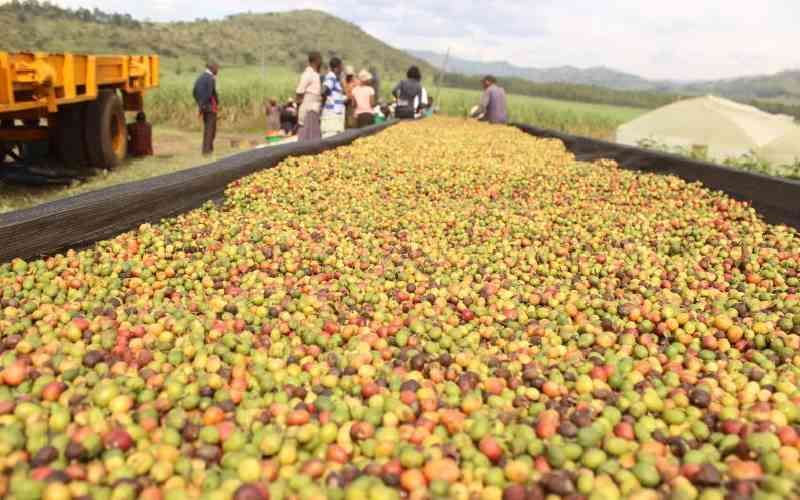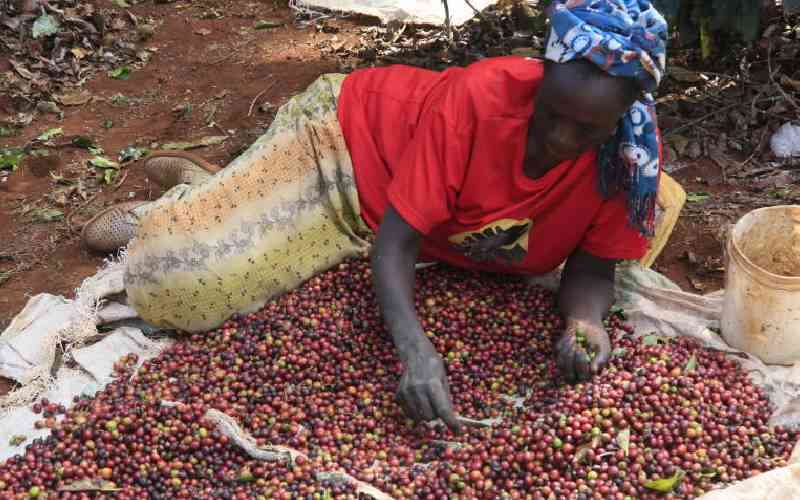The Government plans to provide credit to coffee farmers as part of a strategy to revitalise the industry and expand the country's share in the international market.
President Uhuru Kenyatta disclosed that measures which include increased provision of credit have been lined up to revamp the industry in order to maximise farmers' income in addition to reclaiming the sub-sector's past glory.
Even though he did not indicate how much would be allocated to the industry, President Kenyatta assured Government would commit substantial resources in the coming financial years to enable the industry recover and thus benefit more than 700,000 households that depend on coffee.
"In our economic development blue print – Vision 2030, we recognise coffee as one of the critical sub-sectors under the agriculture sector. To support coffee farming, my Government is undertaking a number of measures aimed at revitalising the industry," the President said.
These, he added, include streamlining the institutional, legal and policy framework, infrastructure improvement, credit access, Information Communication and Technology (ICT) utilisation in service delivery and value addition to coffee produce for high returns.
President Kenyatta made the remarks in a speech read on his behalf by Agriculture Cabinet Secretary Felix Koskei during the opening of a coffee conference in Nairobi last week.
He said though Kenya coffee is highly valued at the international market production has continued to decline over the years. Currently, Kenya is producing between 40,000 and 50,000 metric tonnes against a potential of 130, 000 metric tonnes though prices have been going up since last.
Crop year
Since 1988/89 crop year, production has declined from 130,000 metric tonnes to below 50,000 metric tonnes, representing 61 per cent.
On his part, Koskei observed that the area under coffee has declined over the years to 110,000 hectares of land owing to conversion of coffee bushes into real estate and horticulture farming. He said the industry is facing serious challenges that have contributed to the drop in production and earnings in the recent years.
Farmers, Koskei noted, are grappling with high cost of production, fluctuating coffee prices and exchange rate volatility, declining soil fertility, inefficient primary processing infrastructure and declining land holdings due to subdivision.
"They also suffer from limited value addition for exports and domestic consumption and conversion of coffee estates to real estate in the peri-urban areas, for example, Kiambu and Muranga counties," Mr Koskei added.
He confirmed that Government has created a Sh5 billion Commodity Development Fund of which Sh2 billion has so far been disbursed to 80,000 smallholders and estate coffee growers.
Value addition
"The farmers have been loaned the money to finance production, quality and value addition initiatives," he told the conference participants.
Stay informed. Subscribe to our newsletter
"Further my ministry will implement an Integrated Coffee Productivity Project which targets 21 counties. This is a unique and innovative approach of enhancing coffee productivity in both traditional and non-traditional coffee growing areas in Kenya," said Koskei.
International Coffee Organisation Director General Roberio Silva opined that industry stakeholders need to come together with a view increasing production and thus benefit millions of families that depend on coffee farming.
 The Standard Group Plc is a
multi-media organization with investments in media platforms spanning newspaper
print operations, television, radio broadcasting, digital and online services. The
Standard Group is recognized as a leading multi-media house in Kenya with a key
influence in matters of national and international interest.
The Standard Group Plc is a
multi-media organization with investments in media platforms spanning newspaper
print operations, television, radio broadcasting, digital and online services. The
Standard Group is recognized as a leading multi-media house in Kenya with a key
influence in matters of national and international interest.
 The Standard Group Plc is a
multi-media organization with investments in media platforms spanning newspaper
print operations, television, radio broadcasting, digital and online services. The
Standard Group is recognized as a leading multi-media house in Kenya with a key
influence in matters of national and international interest.
The Standard Group Plc is a
multi-media organization with investments in media platforms spanning newspaper
print operations, television, radio broadcasting, digital and online services. The
Standard Group is recognized as a leading multi-media house in Kenya with a key
influence in matters of national and international interest.









